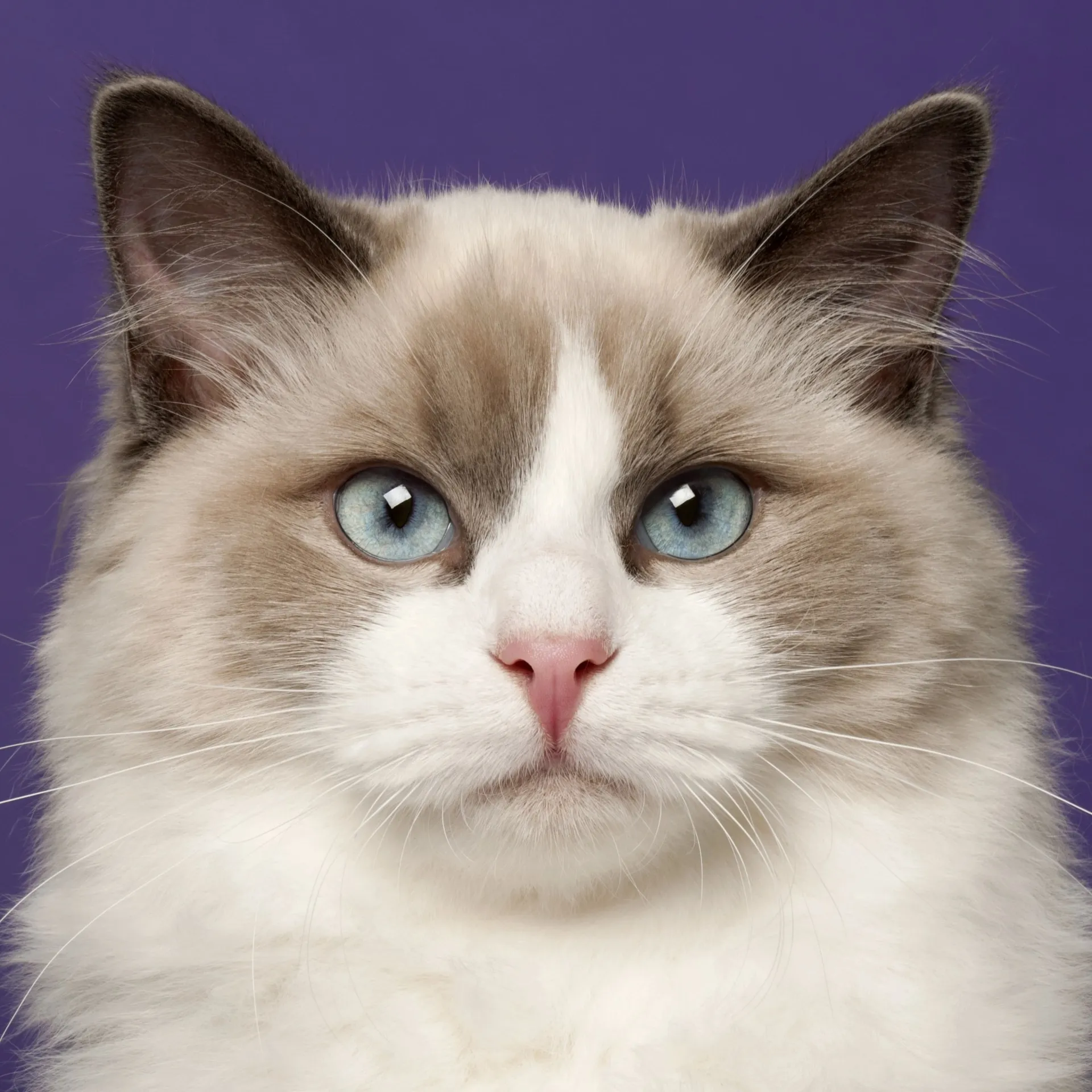All Pets
Directory
News & Stories
Shelters & Rescues
Home
/
Cat Breeds
/
Ragdoll Cat
Ragdoll Cat
Origin
United States
Size
Large Breed
Ideal Space
Apartment
Ideal Weather
20º-30ºC
Avg Monthly Expenses
₹2,800
Basic Lifestyle
₹4,200
Premium Lifestyle
Top 5 Traits
Affectionate
Gentle
Playful
Laid-back
Friendly



Quick Information
Characteristics
Temperament with Kids
Aggressive
Friendly
Playfulness
Silent
Very Playful
Friendliness
Not Friendly
Super Friendly
Shedding amount
Negligible
Frequent
Compatibility with other cats
Not Friendly
Super Friendly
Prey Drive
Low
High
Need for attention
Independent
Very Needy
Monthly Expenses
Nutrition
Monthly Food Expenses
₹ 1,500 - ₹ 2,000
Calories per day
Kittens: 300 kcal
Adults: 250 kcal
Essential Nutrients
Protein
Fats
Carbohydrates
Vitamins
Minerals
Amino Acids (Taurine, Arginine, etc.)
Essential Fatty Acids
Fiber
List of foods
Dry kibble
Wet canned food
Chicken (cooked or raw)
Lamb
Salmon
Sweet potatoes (cooked)
Breakdown of Macro-nutrients
Selecting Good Quality Food
Never feed these foods to Ragdoll Cat
Avoid anything with these ingredients
Onions and Garlic
Caffeine
Chocolate
Alcohol
Bones
Raw Eggs
Grapes and Raisins
Health
Avg Monthly Expenses
₹ 500 - ₹ 700
Common Health Issues
Upper Respiratory Infections
Dental Problems
Obesity
Diabetes
Kidney Disease
Hyperthyroidism
Heartworm Disease
Fleas and Ticks
Activities
Play with Toys
Chasing Objects
Exploring
Climbing
Scratching
Energy Level
Medium
Exercise routine
- - - -
Recognising Stress
Hiding
Increased vocalization
Decreased appetite
Overgrooming
Changes in litter box behavior
Medical Care
Vaccination details
Growth Stage
Core Vaccines
6-8 Weeks
FVRCP
12-14 Weeks
FVRCP
16-18 Weeks
FVRCP
20 Weeks
20 Weeks
Anually
FVRCP + Rabies
Grooming
Avg Monthly Expenses
₹ 800 - ₹ 1,500
Shedding Level
No Shedding
Hygienic Checklist
Litter Box
Fur trimming
Nail Trimming
Ear cleaning
Teeth care
Benefits of Grooming
Cleanliness
Low Shedding
Odourless
Prevents Bad Breath
Prevents infections
Adopt or Shop: The choice is yours!
Cost of buying
₹ 15,000 - ₹ 70,000
Now that you know what it takes to raise a Ragdoll Cat, are you ready to take the next step to pet one?
Compare with similar breeds
Frequently Asked Questions
Are Ragdoll cats good companions for families with children and other pets?
In general, Ragdoll cats make wonderful pets for households with children. They like spending time with people of all ages and are known for their tolerance and patience.
Do Ragdoll cats require a lot of upkeep?
Ragdoll cats don't require a lot of upkeep. They don't need to be bathed very often, but they do need to be brushed and groomed regularly.
What is the lifespan of Ragdoll cats?
The lifespan of Ragdoll cat is typically 12 to 15 years
News & Stories about Cats

News
CATS
Booming Pet Care Market Fuel Debut of Thailand Cat Lovers Fair 2025
26th March 2025

News
CATS
Eva the Cat Makes History at Cochin Airport's First Pet Arrival
4th December 2024

Stories
CATS
Purr-fect Mysteries: Decoding the Reasons behind a Cat’s Purr
13th November 2024
Stay updated with the pet industry
Subscribe Now
Download our pet-parent app
© Excitado Innovations Pvt Ltd








